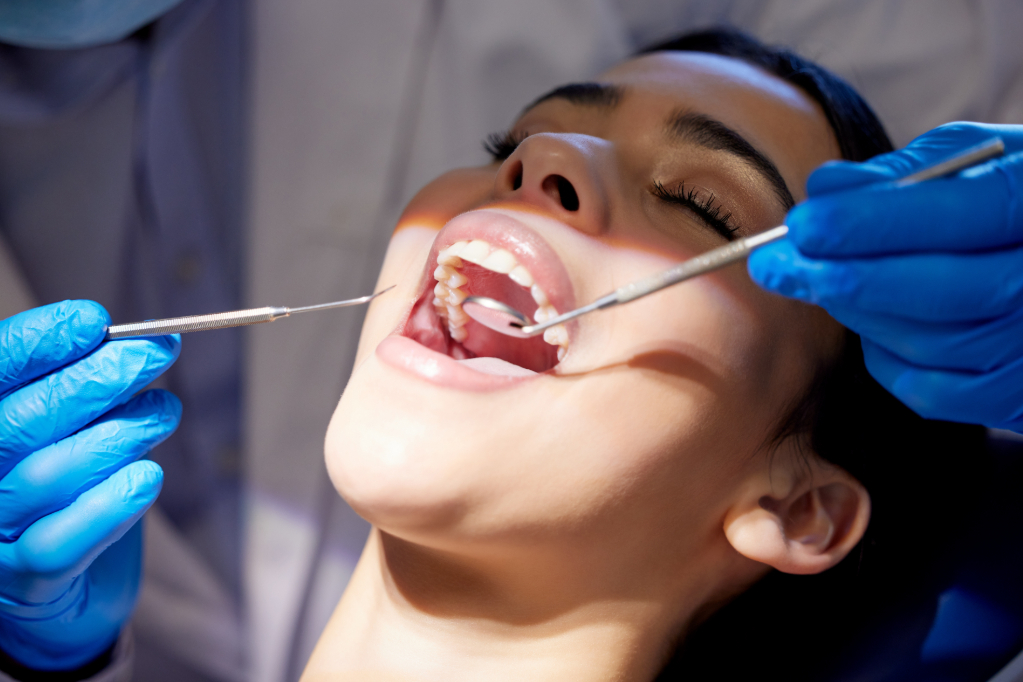
Maintaining optimal oral health goes beyond brushing and flossing daily. Preventive dental care, particularly routine cleanings and exams, plays a critical role in ensuring a healthy smile and overall well-being. These regular visits to the dentist are more than a matter of keeping your teeth white; they help identify potential dental issues early and prevent complications that could become costly or painful.
In this article, we will explore why preventive dental care is vital, the benefits it provides and how it contributes to a healthier lifestyle.
The Importance of Preventive Dental Care
Preventive dental care is the cornerstone of good oral health. It involves regular dental visits for routine cleanings and exams, which allow dentists to assess your oral hygiene, identify potential problems and provide professional cleaning to remove plaque and tartar. While personal oral care practices are essential, professional intervention ensures a deeper and more thorough maintenance of oral health.
These appointments are designed to keep your teeth and gums healthy while reducing the risk of dental issues such as cavities, gum disease or infections.
The Benefits of Routine Dental Cleanings and Exams
- Early Detection of Dental Issues
One of the primary benefits of regular dental checkups is the early detection of problems. Dentists can spot the first signs of tooth decay, gum disease or oral cancer—issues that may not be noticeable to the untrained eye. Early intervention can prevent the need for more invasive and expensive procedures. - Prevention of Gum Disease
Gum disease often starts with plaque buildup, which can harden into tartar if not addressed. During a routine dental cleaning, dentists use specialized tools to remove tartar, preventing gingivitis and its progression to periodontitis, a more severe form of gum disease. - Improved Overall Health
There is a strong connection between oral health and overall health. Poor dental hygiene has been linked to conditions such as heart disease, diabetes and respiratory infections. Routine cleanings and exams help maintain oral health, which in turn supports general well-being. - Preservation of Natural Teeth
Untreated dental issues can lead to tooth loss. Regular visits to the dentist ensure that problems like cavities or gum disease are addressed promptly, helping you keep your natural teeth for as long as possible. - A Confident Smile
Stains, discoloration and tartar buildup can dull your smile. Professional cleanings not only improve oral health but also enhance the appearance of your teeth, boosting your confidence.
What Happens During a Routine Dental Cleaning and Exam?
A typical preventive dental visit consists of two parts: cleaning and examination.
- Dental Cleaning
During the cleaning process, a dental hygienist removes plaque and tartar using specialized tools. This is followed by polishing, which eliminates surface stains and gives your teeth a smooth finish. The hygienist may also provide tips for improving your oral care routine at home. - Comprehensive Examination
The dentist examines your teeth, gums and mouth for signs of problems. They may use X-rays to detect hidden issues, such as cavities between teeth or signs of bone loss, that cannot be seen during a visual exam.
By the end of the visit, you will have a clear understanding of your oral health, and any steps needed to maintain or improve it.
How Often Should You Get Routine Cleanings and Exams?
The general recommendation for preventive dental visits is every six months. However, the frequency may vary depending on individual needs. Some people may require more frequent checkups if they are at higher risk for dental issues, such as those with a history of gum disease or a weakened immune system.
Your dentist can provide personalized advice on how often you should schedule appointments based on your oral health condition.
Why Prevention Is More Affordable Than Treatment
Neglecting routine dental care often leads to more complex problems that require expensive treatments. For example:
- A small cavity that could have been addressed with a filling during a checkup might progress to a severe tooth infection requiring a root canal.
- Gingivitis, if left untreated, can advance to periodontitis, necessitating deep cleaning procedures or even surgery.
By investing in routine cleanings and exams, you save money in the long run by avoiding costly restorative treatments.
The Role of Diet and Lifestyle in Preventive Care
Preventive dental care is not limited to the dentist’s office; your lifestyle plays a significant role as well. Eating a balanced diet low in sugar and acidic foods can help protect your teeth from decay. Additionally, avoiding tobacco and limiting alcohol consumption reduces the risk of gum disease and oral cancer.
Staying hydrated, using fluoride toothpaste and incorporating mouthwash into your routine further enhance your oral health.
Tips for Maximizing the Benefits of Preventive Dental Care
- Stick to a Regular Schedule
Make it a priority to visit your dentist at least twice a year for routine cleanings and exams. Consistency is key to preventing problems and catching issues early. - Communicate with Your Dentist
Discuss any concerns or symptoms you have, such as tooth sensitivity or bleeding gums. Open communication helps your dentist tailor the care you receive. - Follow At-Home Oral Care Practices
Brush twice daily, floss regularly and use mouthwash to keep your mouth clean between visits. Proper home care complements the work done during professional cleanings. - Educate Yourself
Understanding the link between oral health and overall health empowers you to take better care of your teeth and gums.
Building a Foundation for Lifelong Oral Health
Preventive dental care through routine cleanings and exams is a simple yet effective way to maintain your oral health and protect your overall well-being. These regular visits not only prevent dental problems but also improve your quality of life by keeping your smile healthy and confident.
Make preventive dental care a priority—it is an investment in yourself that pays off in countless ways. Taking small steps today can save you from bigger issues down the road ensuring that your teeth and gums remain strong and healthy for years to come.

